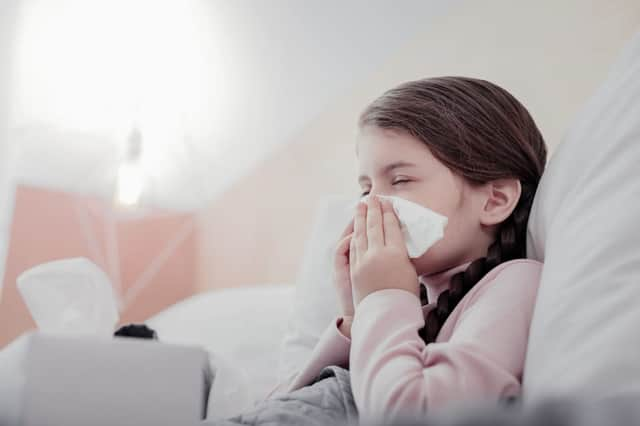Should my child go to school if they have cold symptoms?


Thousands of children in England have now returned to schools for the new term after almost six months away from classrooms for many.
In Scotland, pupils went back to schools slightly earlier in mid-August, with the return prompting a surge in demand for coronavirus tests.
Advertisement
Hide AdAdvertisement
Hide AdTests for children aged from two to 17 increased by 300 per cent in one week, yet figures showed only two more youngsters had the virus than in the previous week.
The increased demand for tests has been attributed to the typical bugs and colds that are common at the start of a new term, with thousands of children being away from classrooms and fellow pupils since March.
But should children be kept off school if they have a cold? Here’s what you need to know.
Can my child go to school with a cold?
Parents have been advised to only take their children out of education if they are experiencing the three main symptoms of coronavirus.
These include:
- a high temperature
- a new, continuous cough – this means coughing a lot, for more than an hour, or three or more coughing episodes in 24 hours
- a loss or change to sense of smell or taste – this means they cannot smell or taste anything, or things smell or taste different to normal
Typical symptoms of a cold, such as a runny nose or a sore throat, are not considered symptoms of coronavirus, and as such, children do not need to be kept off school.
When should my child be tested?
Schools minister Nick Gibb has said that any pupil who is experiencing any of the three main symptoms of coronavirus should be sent home from school to be tested.
However, he urged parents to ensure their children attend school in all other circumstances to ensure they are able to catch up on the lost education they have suffered during the lockdown period.
He said: “If a child is showing the symptoms of coronavirus then they will be asked to return home, to go home, and then the family asked to have a test.
Advertisement
Hide AdAdvertisement
Hide Ad“If that test proves positive, then the school will take advice from the local health protection teams and that will involve tracing all the children and adults that that child will have come across, and those people will then be asked to self-isolate.
“And then, if it is the advice of the local health protection team, a mobile testing unit will go into the school as well to test more young people.”
If a child has other cold-like symptoms, such as a runny nose, they do not need to be tested for coronavirus and will not be required to self-isolate.
They can continue to attend school in this case should they feel well enough to do so.
Does the whole family need to be tested?
According to the government’s Track and Trace guidance, other family members in a household with a child who has suspected coronavirus do not need to have a test or self-isolate unless they are displaying symptoms.
However, it is advised that children should be kept separate from others in the household as much as possible, and no visitors should be allowed in the home.
In the event a child tests positive for coronavirus, everyone in the houshold must isolate for a period of 14 days.
The 14 day self-isolation period starts from the day when the first person in the household became ill or, if they do not have symptoms, from the day their test was taken.
Advertisement
Hide AdAdvertisement
Hide AdIf anyone else in the household starts displaying symptoms, they need to stay at home for at least 10 days from when their symptoms appear, regardless of what day they are on in their original 14 day isolation period.